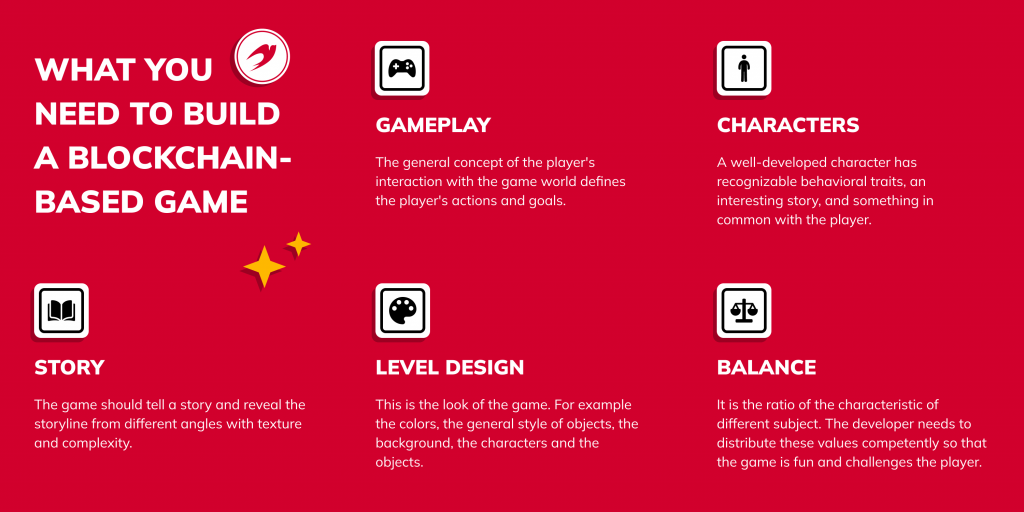Print Fix Hub
Your go-to source for everything print-related, from troubleshooting to tips.
Level Up Your Play: How Blockchain is Revolutionizing Gaming
Discover how blockchain is transforming gaming! Unleash new possibilities and elevate your play experience with our insights.
Exploring the Future: How Blockchain is Transforming Game Ownership
The advent of blockchain technology has ushered in a new era for game ownership, fundamentally transforming the way players interact with digital assets. Traditionally, games use centralized servers to manage ownership, which can lead to issues like data loss and lack of true ownership. However, with blockchain, gamers can now have verifiable proof of ownership for in-game assets, such as character skins, weapons, and even entire games, stored securely on a decentralized ledger. This ensures that players truly own their assets and can trade, sell, or transfer them freely, paving the way for a thriving secondary market.
Furthermore, the integration of blockchain allows for the introduction of non-fungible tokens (NFTs) in the gaming ecosystem. NFTs represent unique digital items that can be bought and sold on various marketplaces, establishing a new standard for rarity and value in video games. As players seek more meaningful engagement with their games, blockchain not only empowers them with ownership but also encourages game developers to create innovative experiences that leverage these new digital economies. Thus, the future of game ownership looks promising as it embraces decentralization and player empowerment, leading to unprecedented opportunities within the gaming industry.

Counter-Strike is a popular tactical first-person shooter game that has captivated players around the world since its release. Known for its competitive nature and team-based gameplay, it requires players to strategize and work together to defeat the opposing team. If you're looking for ways to enhance your gaming experience, be sure to check out the rollbit promo code for some exciting offers.
Play-to-Earn: The New Era of Gaming Economics
The emergence of Play-to-Earn has revolutionized the gaming landscape, creating a dynamic where players can now generate real-world income through their in-game activities. Unlike traditional gaming models that primarily monetize through upfront purchases or subscriptions, the Play-to-Earn model allows players to earn digital assets and cryptocurrency simply by engaging with the game. This new era of gaming economics is not only empowering players, but it also fosters a vibrant in-game economy where players can trade, sell, and invest their earnings, effectively blurring the lines between gaming and financial investment.
One of the key factors driving the success of the Play-to-Earn model is the integration of blockchain technology, which ensures transparency, security, and ownership of digital assets. Game developers are now incentivizing players by incorporating tokenomics into their games, enabling participants to earn rewards that have tangible value. As this trend continues to grow, we are likely to see more gaming studios embrace the Play-to-Earn concept, creating innovative titles that not only entertain but also enrich the lives of their players, thus marking a significant shift in the way games are developed and consumed.
What Are NFTs and How Are They Changing the Gaming Experience?
NFTs, or Non-Fungible Tokens, are unique digital assets that represent ownership of a specific item or piece of content, secured through blockchain technology. In the gaming industry, NFTs are rapidly transforming the player experience by allowing gamers to truly own in-game assets like skins, characters, and virtual goods. This shift from traditional gaming models, where players only have temporary access to items, to a system where players can buy, sell, and trade their NFTs, is creating a vibrant marketplace. As more developers experiment with NFT integration, it is opening doors for new revenue streams and enhancing player engagement.
The impact of NFTs on gaming goes beyond ownership; they are also fostering communities and incentivizing creativity. Players can earn rewards by creating and selling custom content, such as artwork and game modifications, which can then be minted as NFTs. Moreover, the use of NFTs in gaming promotes transparency in player transactions, as each transaction is publicly recorded and verifiable. This level of transparency builds trust within the gaming community and encourages players to invest in their favorite games. As NFTs continue to shape the future of gaming, they promise to deliver a more immersive and personalized experience for gamers worldwide.